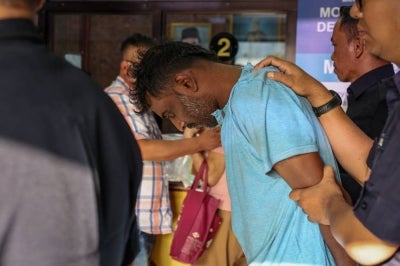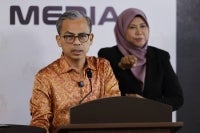Commitment, holistic support to tackle school dropout crisis needed – Experts

SHAH ALAM - Strong commitment is needed in order for the Integrated Dropouts Tracking System to be successful, said experts.
The Parent Action Group for Education (PAGE) chairman Datin Noor Azimah Abdul Rahim said the Integrated Dropouts Tracking System would only work if there was a genuine desire to reduce the dropout numbers.
She said if it was merely to track, then it would not be justifiable to engage in such a system as it should be continuously used to be effective and not only until the next Education Minister changes.
“It will only be effective if schools have specific teachers to track and then act as teachers already know who the dropouts are and the reasons they do so. Whether or not teachers can make students attend is another matter altogether,” she said.
Azimah added that the dropout rate had been high, especially at the secondary level when students opt to work rather than attend school.
“The money that can be earned appears relatively lucrative but will normally entrap them as pay raises are slow.
“The future generation will find that they lack proper skills to help move them up the salary scale as they try to advance in their job, business or trade,” she said.
Azimah also emphasised checking for learning disabilities and ensuring they could do benchmark reading, writing and counting.
“Offer apprenticeship programmes with part-time schools. Work with industry for apprenticeship placement. The community needs to be involved with school leaders to find solutions.
“Parents must be persuaded to encourage their children to be in school. Children need to be convinced of the benefits of being in school,” she said
Meanwhile, former education director-general Tan Sri Alimuddin Mohd Dom said the issues surrounding education, such as high dropout rates and limited opportunities for those without secondary school qualifications, are a concern.
He said that providing education for free since primary school and offering facilities for higher education is crucial.
“However, students who do not complete secondary school face limited study opportunities and job prospects as many sectors require at least an SPM qualification.
“This issue is particularly prominent in rural areas and among indigenous communities, often due to poverty and inadequate support,” he stressed.
Alimuddin emphasises an integrated system is needed to identify and support these students.
“Information can be gathered from head teachers at primary schools, who are familiar with their communities, as well as local organisations.
“On the other hand, NGOs and mass media should play a crucial role in raising awareness about the importance of education and where to seek assistance for those facing challenges,” he stressed.
Besides, he said there were similar challenges in urban areas, especially among the B40 group, with some students not attending school due to various factors.
“Identifying these students through NGOs and community leaders in urban areas is essential. Strategic planning is required to address this issue effectively.
“Another issue is students’ lack of interest in continuing their education. This often stems from a lack of awareness about the importance of education and the opportunities available, such as colleges, universities and Technical and Vocational Education and Training (TVET) programmes.
“Encouraging youths, especially parents, to understand the significance of education is vital. Financial aid options like National Higher Education Fund Corporation (PTPTN) loans and assistance from various organisations should be promoted,” he said.
Meanwhile, he added a well-educated population is essential for a country’s development, as it contributes to progress and higher knowledge.
“To tackle school dropout rates, schools, counsellors, and teachers should emphasise the importance of education to students.
“Career guidance and testing can help identify students’ strengths and guide them toward suitable fields of study.
“Encouragement from non-governmental organisations (NGOs), mass media, and social media can motivate students to pursue higher education,” he expressed.
Recently, the government had been concerned about the issue of school dropouts and aimed to resolve it comprehensively through the implementation of the Integrated Dropouts Tracking System.
Prime Minister Datuk Seri Anwar Ibrahim said special model schools such as Comprehensive Special Model School Year 9 (K9) and Comprehensive Special Model School Year 11 (K11) would be expanded to provide opportunities to Orang Asli children, as well as those from remote and isolated areas to access education.
“The Sekolah Bimbingan Jalinan Kasih (SBJK) initiative for marginalised and stateless children will also be expanded,” he said when tabling the 12th Malaysia Plan (12MP) Mid-Term Review in the Dewan Rakyat.
Download Sinar Daily application.Click Here!















